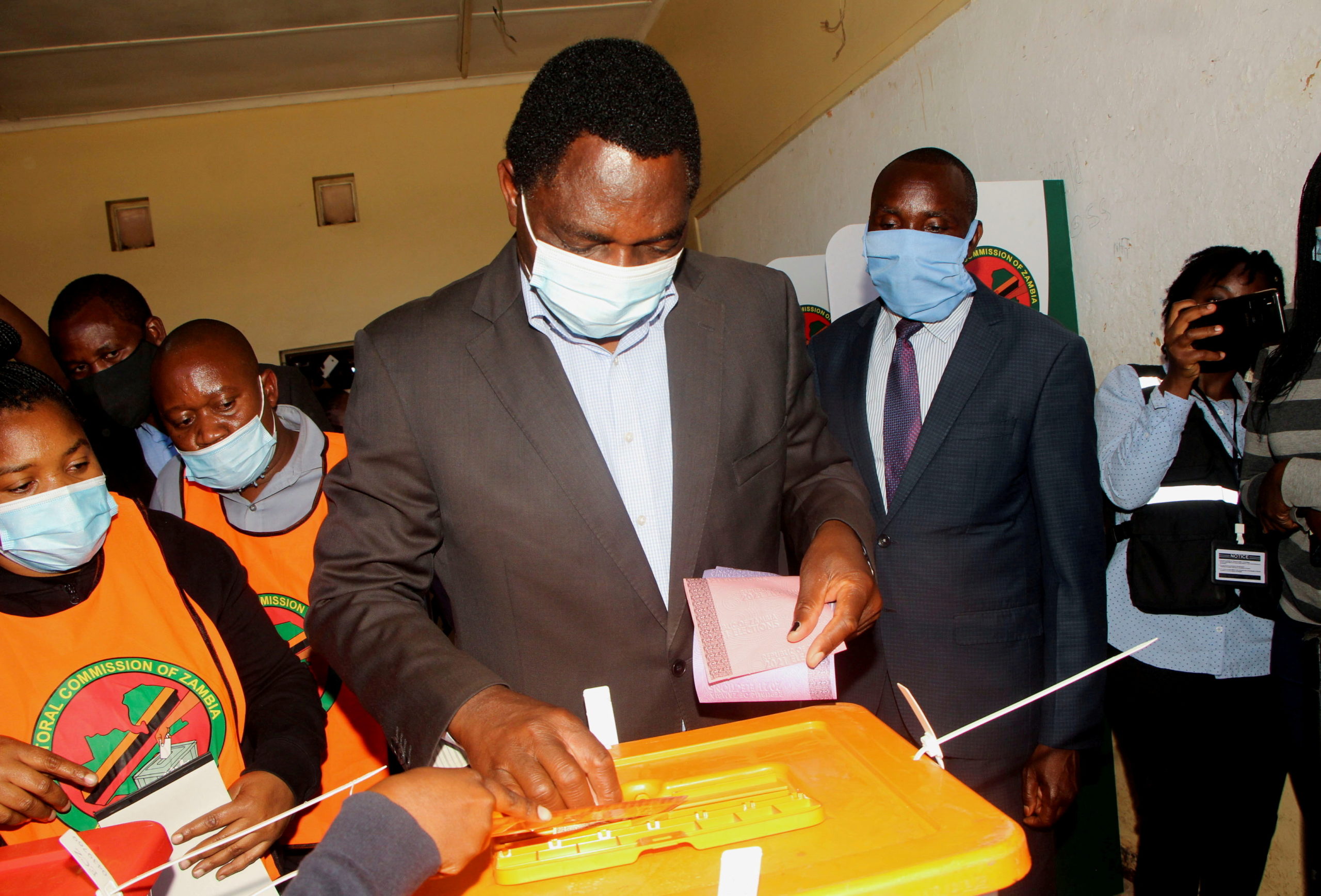Following the invitation of the Zambian Government, the Zimbabwe Election Support Network (Zesn) deployed a learning observation mission comprising three persons to observe the just ended Zambian general elections which took place on the 12th of August 2021.
Zesn was accredited by the Electoral Commission of Zambia (ECZ) to observe polling day processes and those at National Tally Centre during the results tabulation exercise.
In the period leading to the elections, the Zesn Mission interacted with various stakeholders including the domestic election observer groups in Zambia.
Zesn wishes to congratulate the people of Zambia, including the youth, who came out in their numbers to vote, and exhibited considerable patience as they waited for hours in very long queues before getting a chance to cast their vote.
This was evident at the majority of the polling stations which the Mission visited in four Lusaka Constituencies namely Chawama, Kanyama, Kabwata and Lusaka Central Constituencies. Overall Election-Day was generally peaceful and orderly save for isolated incidents of violence.
Zesn commends the ECZ for extending the right to vote to prisoners, Zesn was able to observe polling at both the male and female sections of the Lusaka Central Correctional Facility.
The ECZ staff were professional in their conduct and consistently followed the opening, polling and closing procedures at all the polling stations that Zesn visited.
The ECZ ensured that party agents at the respective polling stations had copies of the voter’s r0ll thus enhancing the transparency of the polling process.
However, the ECZ appeared not fully prepared for the huge turnout, with voting at some polling stations continuing well into the night and in some instances counting only commencing the following day.
This was observed at Woodlands B primary school in Lusaka.
Nevertheless, the ECZ polling official remained professional and facilitated voting by the multitudes that turned up to cast their vote even in stances where some polling official had to work for over 15 hours.
While the ECZ developed detailed Standard Operating Procedures (SOPs) Against Covid-19, its provisions were not systematically adhered to as many voters were not observing social distancing, sanitising or washing of hands with soap and running water which was provided for at every polling station.
Voters’ ability to identify their correct polling stations could have improved with adequate signage or posting of voter’s names outside their polling stations, as was witnessed at some polling stations in Chawama Constituency.
Despite the devastating COVID-19 Pandemic ravaging the world, Zambia, like Malawi in the year 2020, successfully conducted general elections which ushered in a new dispensation in Zambia.
We wish to commend the Electoral Commission of Zambia (ECZ), which working with the Health Ministry, developed a health protocol tailor-made for the general elections, ensuring that ECZ fulfilled its constitutional obligations of organizing regular, timely general elections.
The elections in Zambia, as witnessed in other parts of the world, are yet again proof that it is possible to conduct elections in the middle of a serious pandemic.
Democracy, not the COVID-19 must have a final say. The Zimbabwe Electoral Commission (ZEC) can draw lessons from Zambia on how to conduct elections during a pandemic, and prepare to conduct overdue by-elections, the delimitation exercise and the 2023 general elections.
Zesn applauds the outgoing President of Zambia Edgar Chagwa Lungu for pledging a smooth transfer of power to the incoming government just hours after the announcement of the winning candidate, a rare feet on the African continent.
Democracy in Africa will be richer if all outgoing leaders emulate the Zambian example. Zesn also wishes to congratulate the United Party for National Development [UPND] and its President and President-elect of Zambia Mr. Hakainde Hichilema for winning the elections.
Some of the lessons for consideration by Zimbabwean stakeholders include the fact that elections can be successfully conducted in the midst of the COVID-19 pandemic, if appropriate health protocols are put in place for the safe conduct of elections.
Mobilizing voters to register and to vote in their number can assist in clearly determining winners in an election and also consequently support acceptance to election results by those who would have lost the election.
The time between the closing of polling stations and the announcement of results remains a very sensitive period within an electoral cycle, results need to be announced as soon as they are verified by the Commission to ease tensions that inevitably build up when announcement of results is delayed.
Diplomatic efforts to prepare those that may lose an election is critical. Political parties need to deploy their agents comprehensively so that their respective parties can comment authoritatively on electoral processes.
Parallel Voter Tabulation can contribute toward enhancing electoral integrity by providing quick updates on ongoing electoral processes and also by verifying the elections result.
Security services play a critical role of securing electoral processes and need to remain apolitical as well as professional.
Stakeholders the Zesn met during the period leading to the general elections complained of an uneven playing field for political parties, unequal access to the public media by contesting political parties, misinformation and disinformation and heightened political tension which in some instances led to violence.
On Election Day the Zesn team noted that access to social media platforms was restricted.
Meetings with various stakeholders revealed that public confidence in the ECZ was eroded by the level of engagement between ECZ and its stakeholders which was viewed as inadequate.
Domestic observers shared concerns on the new accreditation requirements which they criticized as both cumbersome and expensive.
The process included restriction of 5 observers per organisation per constituency, submitting applications in triplets with certified copies National Registration Cards, as well the requirement for observers to present themselves at accreditation centres in person.
Following the observations made, Zesn made the following recommendations for consideration by the Zambian Stakeholders so as to further strengthen the integrity of electoral processes in Zambia:
To the ECZ:
I. Improve signage for polling stations to facilitate voters’ identification of the correct
polling stations.
ii. Identify and review all the administrative procedures that had the unintended
effect of slowing down the polling process.
iii. Review the procedures f0r monitors and observer’s accreditation to make the
process less costly and less cumbersome.
The Government:
I. Make reasonable efforts to ensure equitable access to the public media by all
political parties during campaign periods.
ii. Facilitate sustained dialogue and alternative dispute resolution mechanism to
address entrenched political issues that contributed to heightened tension in the
period leading to and during the elections.
To Civil Society Organisations
iii. Continue with the oversight role on electoral processes throughout the electoral
cycle, impartially and ensure sustained engagement with the ECZ.






